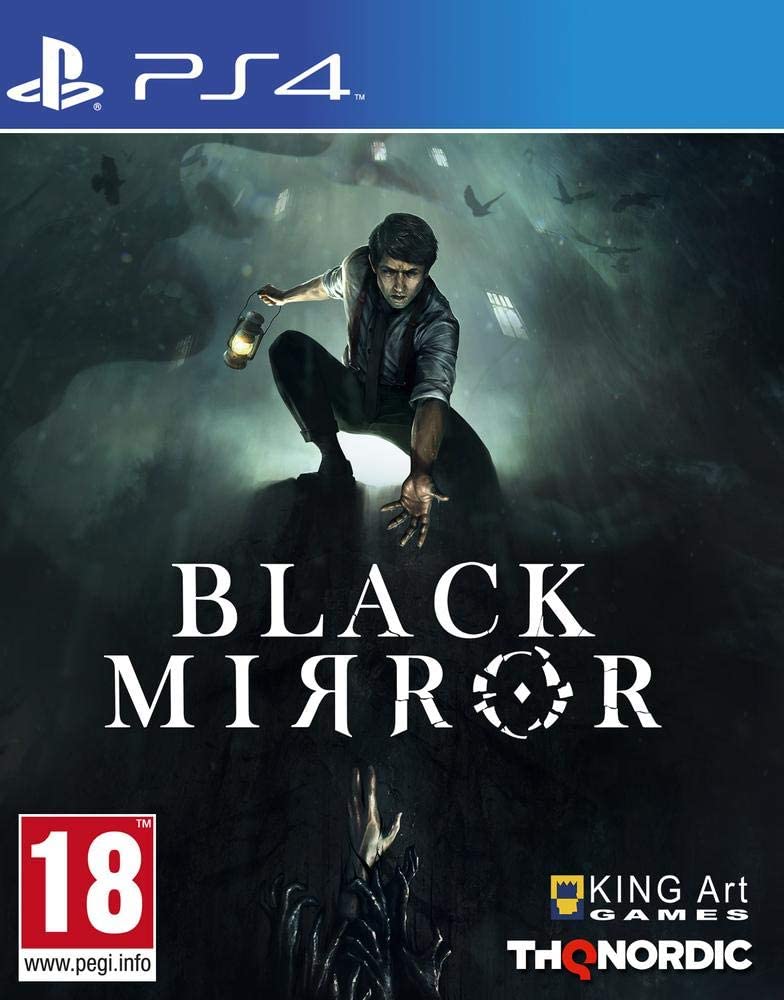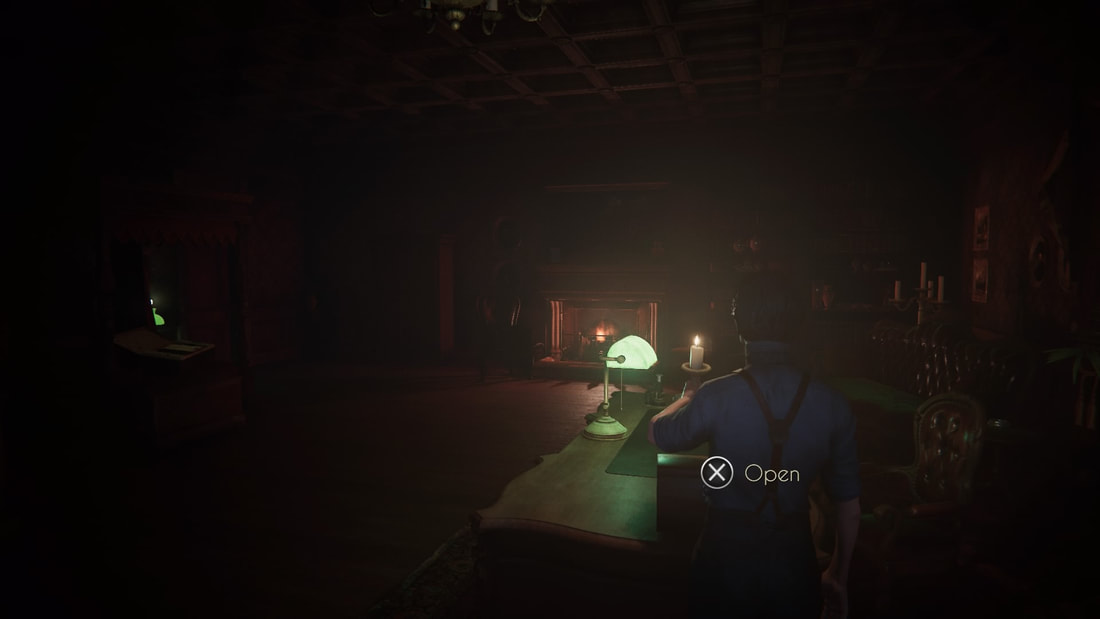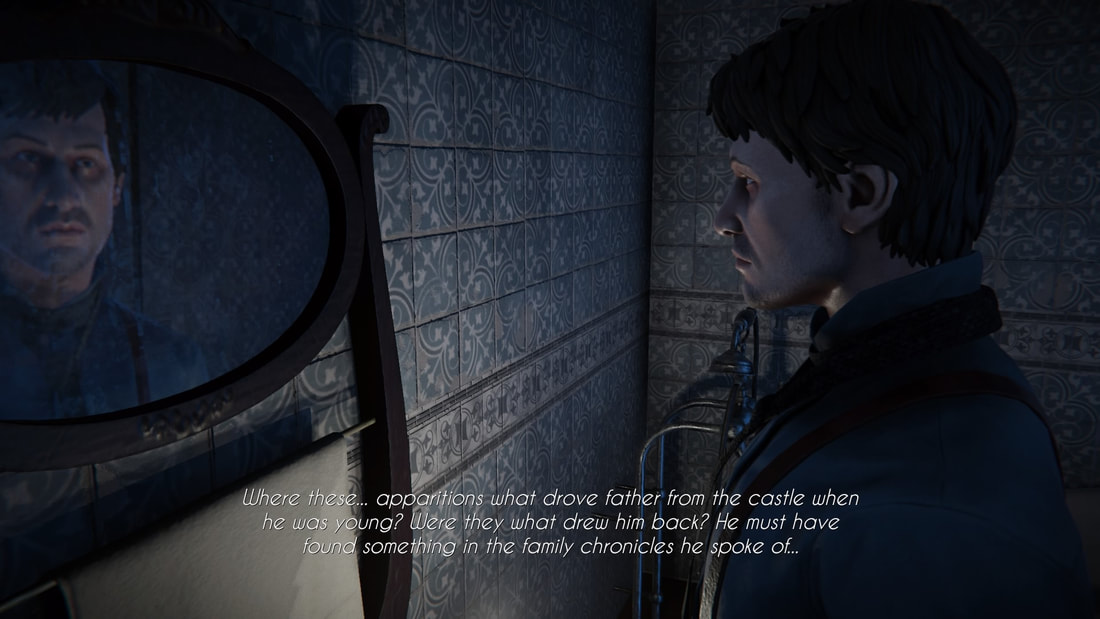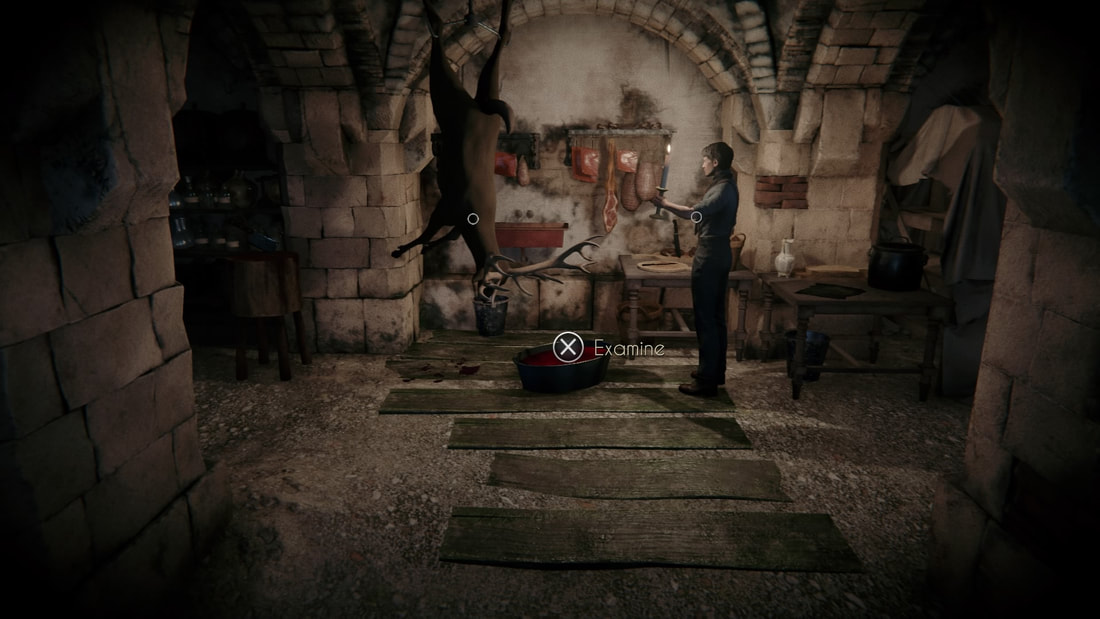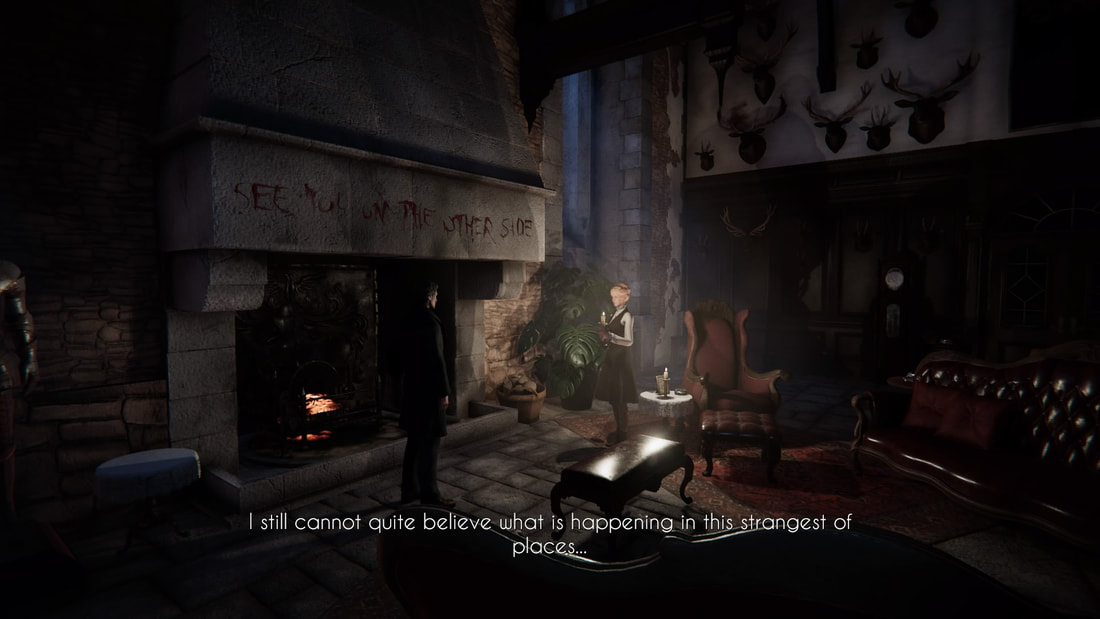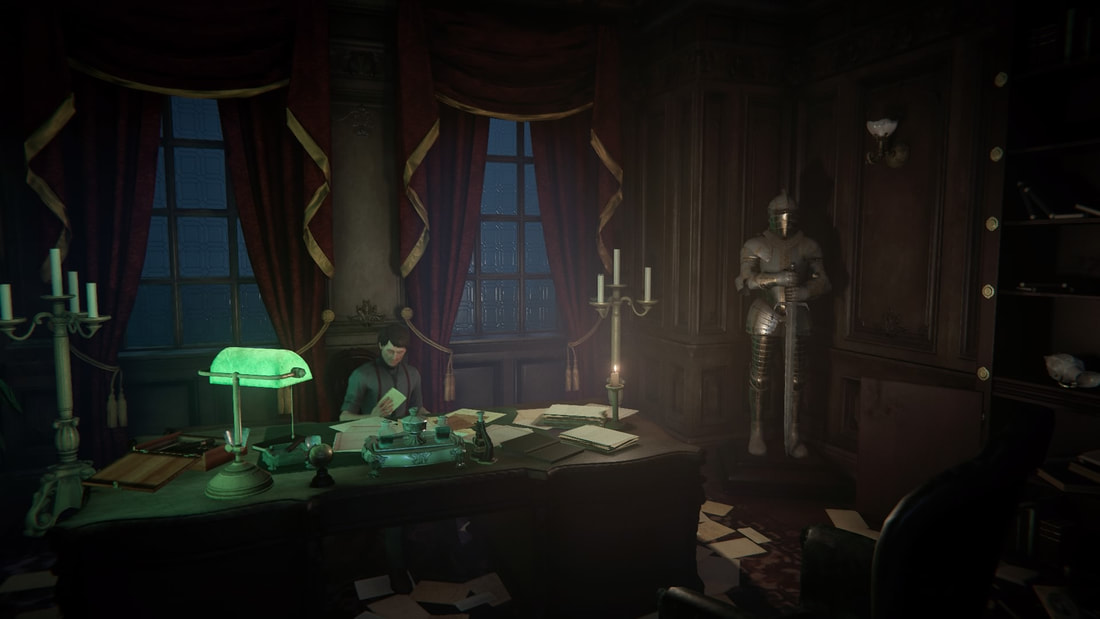BLACK MIRROR (PS4)
A modernised reboot of a point ‘n’ click trilogy released between 2003 and 2011, Black Mirror is a diverting idea. Set in 1926, amidst the gothic splendour of a Scottish Castle, the game dispenses with its cursor-orientated beginnings in favour of a more streamlined, third-person adventure. It follows David Gordon, who travels to the family estate he is to inherit after learning of his father’s suicide. However, it soon becomes apparent that this looming abode holds a great many secrets and the supposed curse of the Gordon line soon starts to weigh heavy of David. The remaining family and staff who still inhabit the house and grounds have more than their share of secrets, too.
Black Mirror’s greatest successes lie in its visual design, period theme and story. Whilst there are admittedly instances where the narrative does become a little muddled in discussions relating to the various generations of the Gordon family, cousins and relations, there’s a decent yarn to ruminate over as you explore. Black Mirror Castle doesn’t evoke any real sense of fear or tension, despite superficial similarities with survival horror titles, but it does conjure a certain atmosphere.
Black Mirror features some atmospheric lighting, bringing to life the castle and its estate
Black Mirror captures its period setting with aplomb. Whilst the character models don’t look anything special, they benefit from a number of small but distinguishing visual flourishes, from movement animations and mannerisms to clothing that exhibits strong attention to detail. Castle interiors show off the game to best effect. The library, dining room and bedrooms look marvellous, aided as they are by an effective graining filter and superb lighting effects. Rays burst through gaps in the curtains during daylight hours, whilst the surrounds feel more oppressive by candlelight, in the evenings. Kitchens and cellars are equally fitting, with forensic attention paid to equipment, food preparation and scenic minutiae such as cobwebs. There’s plenty to admire and in hindsight, it’s a shame David isn’t able to interact with a little more of his surrounds.
Things begin well enough, with the opening chapter centring around familiarising yourself with the layout and David’s attempts to open a family chest, via a nifty couple of brainteasers. These evoke positive associations with Frogwares’ enjoyable Sherlock Holmes games, but this initial promise is more than Black Mirror is ultimately able to deliver on. It’s quiet for lengthy periods, unable to balance gameplay and narrative with consistency. Exploring in the gloom can become tiresome as often you’re tasked with retracing your steps through the same sequence of rooms, looking for something relatively small, such as a photograph in a frame. Now and then though, you’re given the freedom to approach certain problems from a couple of different angles, which is nice. Gaining entrance to the cellar offers the best example. David can talk the butler into giving him the key, or make use of a dumb waiter, a partner-in-crime and some ad-hoc unlocking skills to open it up from the inside.
Things begin well enough, with the opening chapter centring around familiarising yourself with the layout and David’s attempts to open a family chest, via a nifty couple of brainteasers. These evoke positive associations with Frogwares’ enjoyable Sherlock Holmes games, but this initial promise is more than Black Mirror is ultimately able to deliver on. It’s quiet for lengthy periods, unable to balance gameplay and narrative with consistency. Exploring in the gloom can become tiresome as often you’re tasked with retracing your steps through the same sequence of rooms, looking for something relatively small, such as a photograph in a frame. Now and then though, you’re given the freedom to approach certain problems from a couple of different angles, which is nice. Gaining entrance to the cellar offers the best example. David can talk the butler into giving him the key, or make use of a dumb waiter, a partner-in-crime and some ad-hoc unlocking skills to open it up from the inside.
It certainly isn’t the longest game of its kind. Those who can get their heads around the irritating, recurrent key adjustment puzzles should finish the game in around eight hours. A lack of additional options and just the single ending to play through hurt the game’s long-term prospects, though it is compelling enough to keep you playing to the credits.
There are a few wobbles relating to performance. Easily the biggest hindrance is the hefty room-to-room loading times, which are long enough to disrupt the flow of exploring. There’s the odd trace of slow-down, as well as occasional, brief pauses as the game appears to freeze for a moment. Though its issues are rarely any more intrusive than this, a couple of times cut-scene dialogues lapsed, leaving characters in limbo and requiring a restart. Make sure to save often!
There are a few wobbles relating to performance. Easily the biggest hindrance is the hefty room-to-room loading times, which are long enough to disrupt the flow of exploring. There’s the odd trace of slow-down, as well as occasional, brief pauses as the game appears to freeze for a moment. Though its issues are rarely any more intrusive than this, a couple of times cut-scene dialogues lapsed, leaving characters in limbo and requiring a restart. Make sure to save often!
Puzzles are welcome, though less enjoyable beyond the excellent opening chapter
A strong beginning gives way to a lack of depth in the playing experience, but an unusual and eclectic cast of characters keep things ticking over. Black Mirror offers nothing especially memorable in the gameplay stakes, but between its story and its setting, is a good bit of escapism. A diverting adventure and one to please fans of puzzling, but its brevity is a bit of a let down. Worth a look, if you’re after a couple of days worth of atmospheric distraction.
MORE GAMES SET IN MANSIONS OR STATELY HOMES REVIEWED
